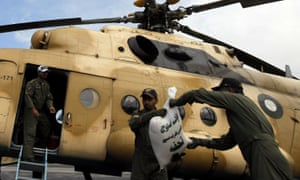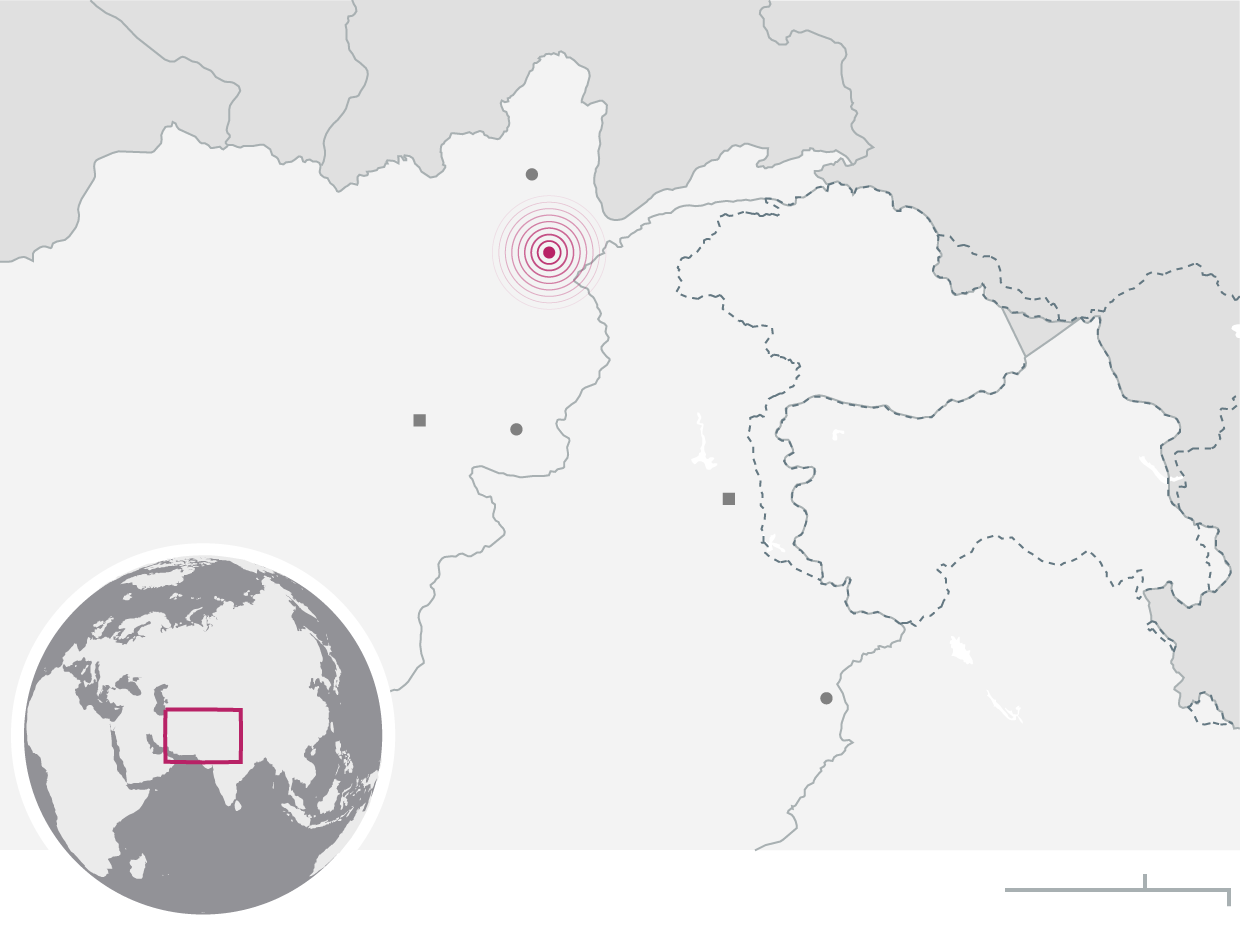Aid agencies in Pakistan and Afghanistan say freezing weather and destruction of homes and roads has put more lives at risk

Freezing weather, blocked roads and a lack of shelter are endangering the lives of the survivors of the earthquake that rocked Afghanistan and Pakistan, aid agencies have warned.
The powerful 7.5 magnitude quake on Monday has killed 370 people and destroyed thousands of homes. Two days after the disaster, rescue workers were still struggling to get to far-flung areas in the mountainous and poverty-stricken region.
Médecins sans Frontières said its teams in the region were shifting their focus from the immediate needs of the wounded to working out how to provide hygiene kits and shelter to survivors.
“Initial assessments suggest that shelter and hygiene will be most likely the main needs, as it is already snowing in some of the more mountainous areas, and we have stocks of shelter and hygiene kits ready,” said Shelagh Woods, the MSF country representative in Pakistan.

In many areas where houses have been destroyed, people have been enduring freezing conditions. Jamil Khan, a 24-year-old from Shangla, one of the worst affected districts in Pakistan, complained that many people had been forced to sit in the rain.
“No one came to help us,” he said. “We are sitting in open area.”
Pakistan’s army has been at the forefront of rescue efforts, airlifting supplies of tents, blankets and ready meals to hard-hit areas. Military teams have also been working to clear landslides from roads.
Many of the areas affected are hard to reach even in normal circumstances, said Karin Hulshof, the regional director of the United Nations Children’s Fund.
“We are extremely concerned for the safety and wellbeing of children, who are already the most at risk in any disaster and are now in danger of succumbing to the elements as temperatures plummet,” she said.
Access is especially challenging in many parts of Afghanistan. Badakhshan, the north-eastern province where the earthquake struck, is extremely remote and affected by the Taliban-led insurgency in the country.
On Tuesday, the Taliban said its fighters would assist aid workers, but many agencies remain wary.
There had been a large influx of casualties to a hospital run by the French aid agency Première Urgence Internationale in Kunar, an eastern province that was badly hit.
Kjersti Haraldseide, the acting country director for Afghanistan for the Norwegian Refugee Council, said: “What is most needed at this stage is medical assistance to the injured, medical equipment and shelter for the affected populations.”
In Pakistan, the provincial disaster management authority in Khyber Pakhtunkhwa said more than 9,000 houses had been damaged and 133 schools destroyed in the province.
On Wednesday, the Pakistani prime minister, Nawaz Sharif, announced government grants of 200,000 rupees (£1,200) to help rebuild homes.
“We are going to start the provision of compensation to those whose homes were damaged,” he said during a visit to the city of Peshawar.
http://www.theguardian.com/

Pakistani soldiers load food bags on to a military helicopter in Peshawar. Relief workers say they are having difficulty reaching people in mountainous areas. Photograph: Umar Qayyum/Xinhua Press/Corbis
The powerful 7.5 magnitude quake on Monday has killed 370 people and destroyed thousands of homes. Two days after the disaster, rescue workers were still struggling to get to far-flung areas in the mountainous and poverty-stricken region.
Médecins sans Frontières said its teams in the region were shifting their focus from the immediate needs of the wounded to working out how to provide hygiene kits and shelter to survivors.
“Initial assessments suggest that shelter and hygiene will be most likely the main needs, as it is already snowing in some of the more mountainous areas, and we have stocks of shelter and hygiene kits ready,” said Shelagh Woods, the MSF country representative in Pakistan.

In many areas where houses have been destroyed, people have been enduring freezing conditions. Jamil Khan, a 24-year-old from Shangla, one of the worst affected districts in Pakistan, complained that many people had been forced to sit in the rain.
“No one came to help us,” he said. “We are sitting in open area.”
Pakistan’s army has been at the forefront of rescue efforts, airlifting supplies of tents, blankets and ready meals to hard-hit areas. Military teams have also been working to clear landslides from roads.
Many of the areas affected are hard to reach even in normal circumstances, said Karin Hulshof, the regional director of the United Nations Children’s Fund.
“We are extremely concerned for the safety and wellbeing of children, who are already the most at risk in any disaster and are now in danger of succumbing to the elements as temperatures plummet,” she said.
Access is especially challenging in many parts of Afghanistan. Badakhshan, the north-eastern province where the earthquake struck, is extremely remote and affected by the Taliban-led insurgency in the country.
On Tuesday, the Taliban said its fighters would assist aid workers, but many agencies remain wary.
There had been a large influx of casualties to a hospital run by the French aid agency Première Urgence Internationale in Kunar, an eastern province that was badly hit.
Kjersti Haraldseide, the acting country director for Afghanistan for the Norwegian Refugee Council, said: “What is most needed at this stage is medical assistance to the injured, medical equipment and shelter for the affected populations.”
In Pakistan, the provincial disaster management authority in Khyber Pakhtunkhwa said more than 9,000 houses had been damaged and 133 schools destroyed in the province.
On Wednesday, the Pakistani prime minister, Nawaz Sharif, announced government grants of 200,000 rupees (£1,200) to help rebuild homes.
“We are going to start the provision of compensation to those whose homes were damaged,” he said during a visit to the city of Peshawar.
http://www.theguardian.com/
No comments:
Post a Comment